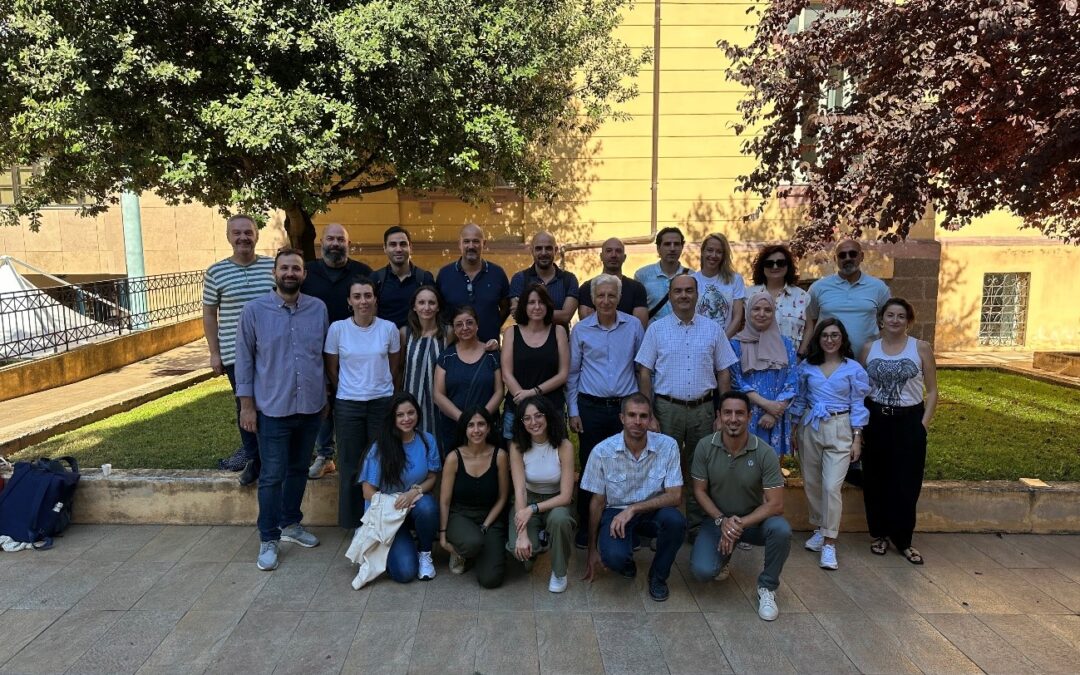NATMed has held on 26 and 27 September its second regular meeting at the premises of the University of Sassari (Italy). The aim of this session was to evaluate the profess of the project, in particular the development of the Case Studies and the Nature-based Solutions (NBS) to be implemented for the improvement of water management and the waste cycle. During the meeting, the consortium had the opportunity to visit the Arborea case study to learn about the solutions implemented with the Forest Infiltration Area and the activities to be developed in the project.
The co-design, implementation and evaluation of the BMS in the five case studies of the Mediterranean region (Spain, Greece, Italy, Turkey and Algeria) will allow the development of a replicable model to improvement water management and optimise water resources in the Mediterranean region. To this end, the project is developing governance activities to enable the replication and transfer of results to stakeholders, involving the local population in the different phases of the project.
The main objective of the NATMed project is to develop, implement and validate a set of Nature-based Solutions integrated into existing greywater and natural water infrastructures and based on specific phases of the water cycle, in order to optimise water-related and water-dependent ecosystem services.
The CARTIF team, coordinator of the project, is in charge of the analysis and diagnosis of the current water management situation in each region, as well as the Nature-based Solutions proposed to be implemented in each of them. In addition, it will co-design the “Full Cycle Nature-based Solutions” taking into account the challenges of each region. It also participates in the development of the Carrión de los Céspedes case study in Seville, collaborating in the technical specifications of the solutions, monitoring and impact assessment.
The project has a duration of three years. The NATMed project consortium is composed of CARTIF, Environment and Water Agency, Social Climate, Tero PC, Environmental Center of Region of Western Macedonia, University of Sassari, Demir Enerji, University of the Aegean, Izmir Institute Technology, SBNCLIMA, Research & Scientific Technical Center Sur Les Régions Aride, Municipality of Bozcaada.
